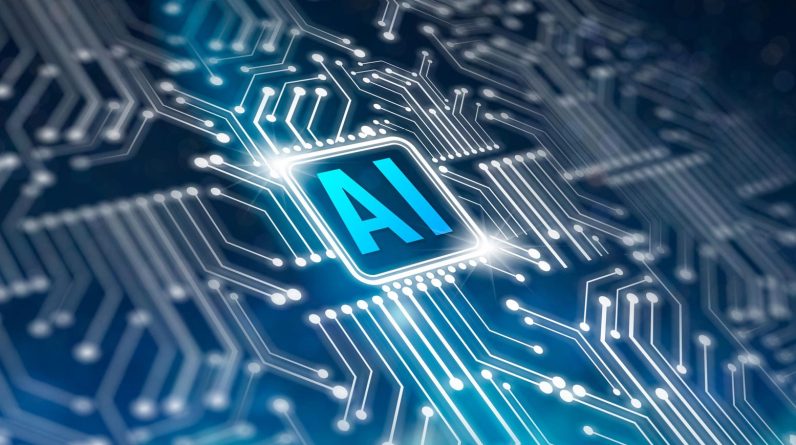
Erik Jost, VP Modern Workplace, Black Box Corporation.
We’ve all seen the headlines. AI is supposedly set to replace 20%, 50%, maybe even 80% of today’s jobs. The predictions keep coming, and they all point in the same direction.
Automation is happening now, which has led many to ask, “Will my job be replaced?” But the question I’ve been asking is, “What kind of jobs are going to stay?”
Connection As A Competitive Edge
I keep having that “who will stay” conversation at home. My wife is a global luxury real estate advisor, and her work is built on relationships and trust. She always says: “Luxury isn’t what you pay. It’s the service you get.”
She’s right. The difference between a high-end experience and a commodity transaction isn’t the commission; it’s the connection. And that’s going to define not just premium services, but the entire workforce moving forward.
Take ride-sharing as a key example. Autonomous cars from Waymo and Tesla are working toward ensuring safer and cheaper alternatives to human drivers. But some people want more than transportation. They appreciate the human interaction, whether that takes the form of a bottle of water, a well-timed joke or the sense that someone actually cares about their experience.
Even in an industry like real estate, while AI is changing the game, what makes workers irreplaceable is the way they work with people. This means doing more than just selling homes to help people build wealth and find places to live meaningful lives. It’s having the foresight to keep clients’ kids busy with coloring books and snacks when they bring their children to showings.
That kind of connection can’t be scripted or scaled. While AI undoubtedly will displace jobs, it can’t replace the human element that makes people uniquely valuable.
For Leaders: Automate, Then Invest In People
Automation is viewed as the baseline for staying competitive today. While many organizations are working to automate everything they can, efficiency is just the starting point. The next step is rethinking what your team needs to look like in this new landscape.
Here’s where it gets interesting, as I believe the roles that remain won’t be traditional. They won’t fit into clean org charts. They’ll be filled by people you already think of as your “superstars,” the ones who stretch beyond their job description and deliver in front of customers and executives. They’re the ones who are empathetic, socially aware and adaptable.
These people aren’t valuable because of a title or a certification. They’re valuable because they bring a mix of curiosity, execution and emotional intelligence that no AI can match. They adapt quickly. They see change coming before it hits. They know how to talk to people.
If you’re leading a company, your work is to identify those people. Invest in them. Build your next chapter around them. These top performers will help to make your business future-proof.
For Everyone Else: Lean Into Your Human-ness
Thanks to AI, a small company can now do what used to take a large one. For that matter, a one-person startup with a smart AI stack can scale like never before.
If you’re just trying to stay relevant in an economy that feels like it’s moving at light speed, what do you do? First, it’s important not to pretend like AI and today’s innovations can be beaten at their own games. They can’t be out-memorized, out-produced or out-coded.
However, you can work toward ensuring you’re irreplaceable in the ways that matter most. That means developing the traits AI can’t touch. Today, I see three traits that will define the people who survive and thrive in this new environment.
First, they’ll be deeply curious and actively engaged in learning and understanding how the world is changing. Second, they’ll be capable of translating that curiosity into action, turning ideas into reality and consistently delivering results. Finally, they’ll lean into their human strengths: the ability to communicate with empathy, navigate tough conversations and go above and beyond when the moment calls for it.
These skills are what can separate those who have built high-value human connection from purely transactional workers. Across industries, that combination of curiosity, execution and human connection is already defining the next generation of successful professionals.
Where Is This All Going?
Nobody knows for sure what the future workforce might like. Today, it’s BMW’s factory robots placing screws with millimeter-level precision. Tomorrow, a household robot might be mowing your lawn, folding your laundry and troubleshooting your home’s electrical systems. And the day after that? Maybe doing your taxes, running your business or driving your kids to school.
Some days it feels like we’re headed for a utopia where machines give us back our time to enjoy Michelin-quality dinners, clean homes and neatly tended gardens, and space to focus on meaningful work and relationships. Other days, it feels like we’re racing toward a dystopia where half the world is unemployed and the other half is trying to keep up.
There’s no guaranteed path forward, but what I do know is that if you want to stay in the game, you need to bring what the robots can’t. Show up. Stretch yourself. Connect. Learn. These very human skills will keep you relevant when the machines are doing everything else.
Forbes Technology Council is an invitation-only community for world-class CIOs, CTOs and technology executives. Do I qualify?








